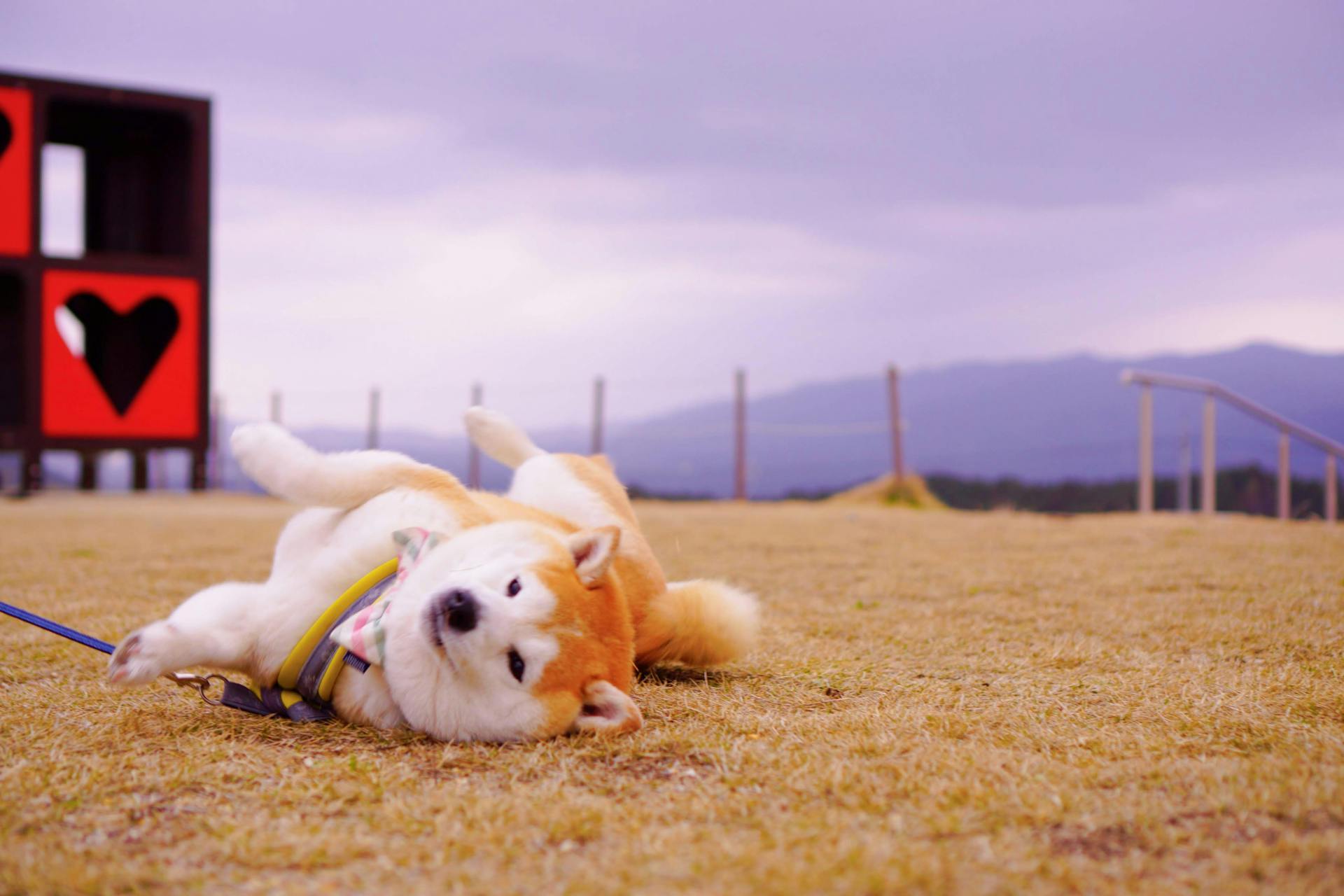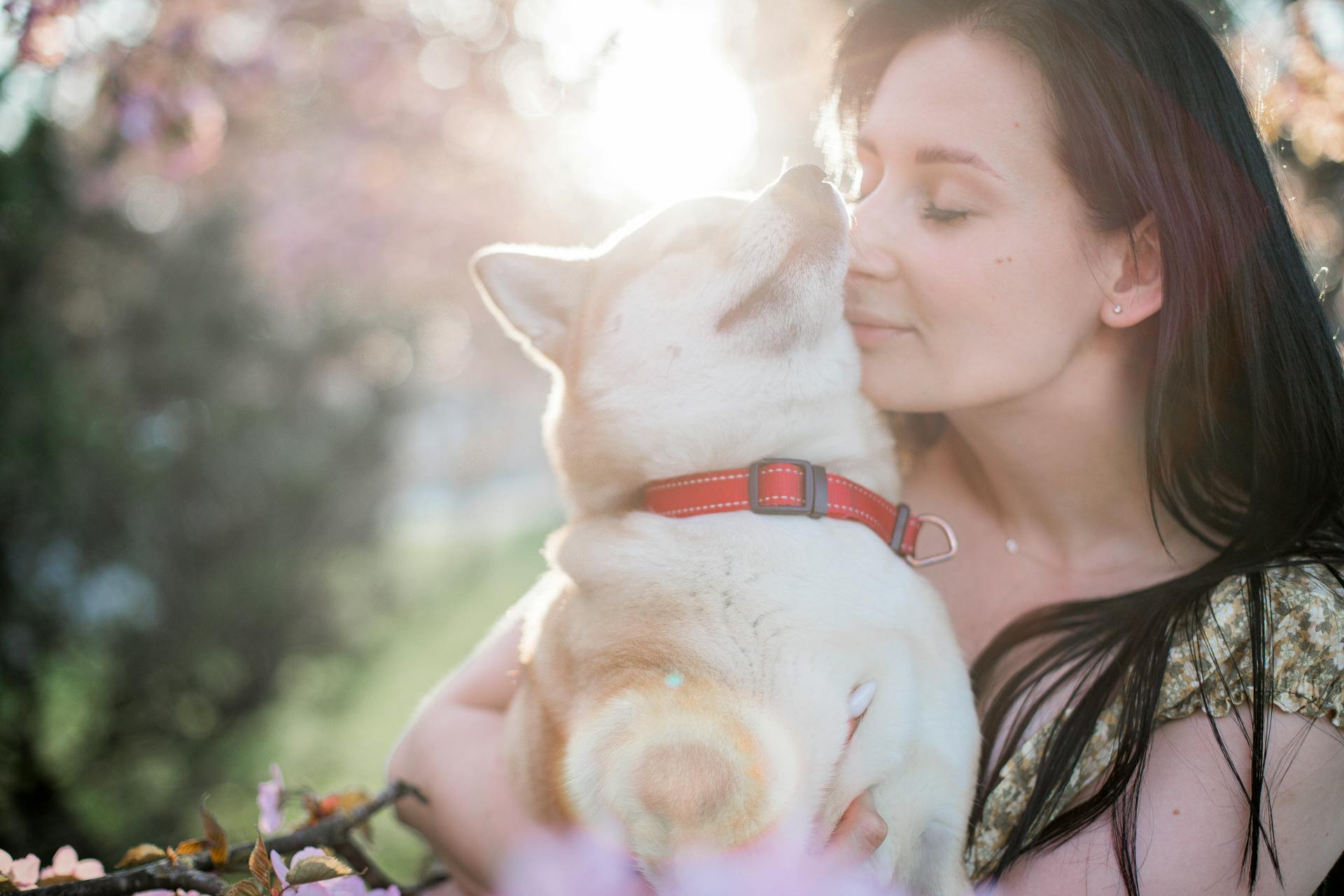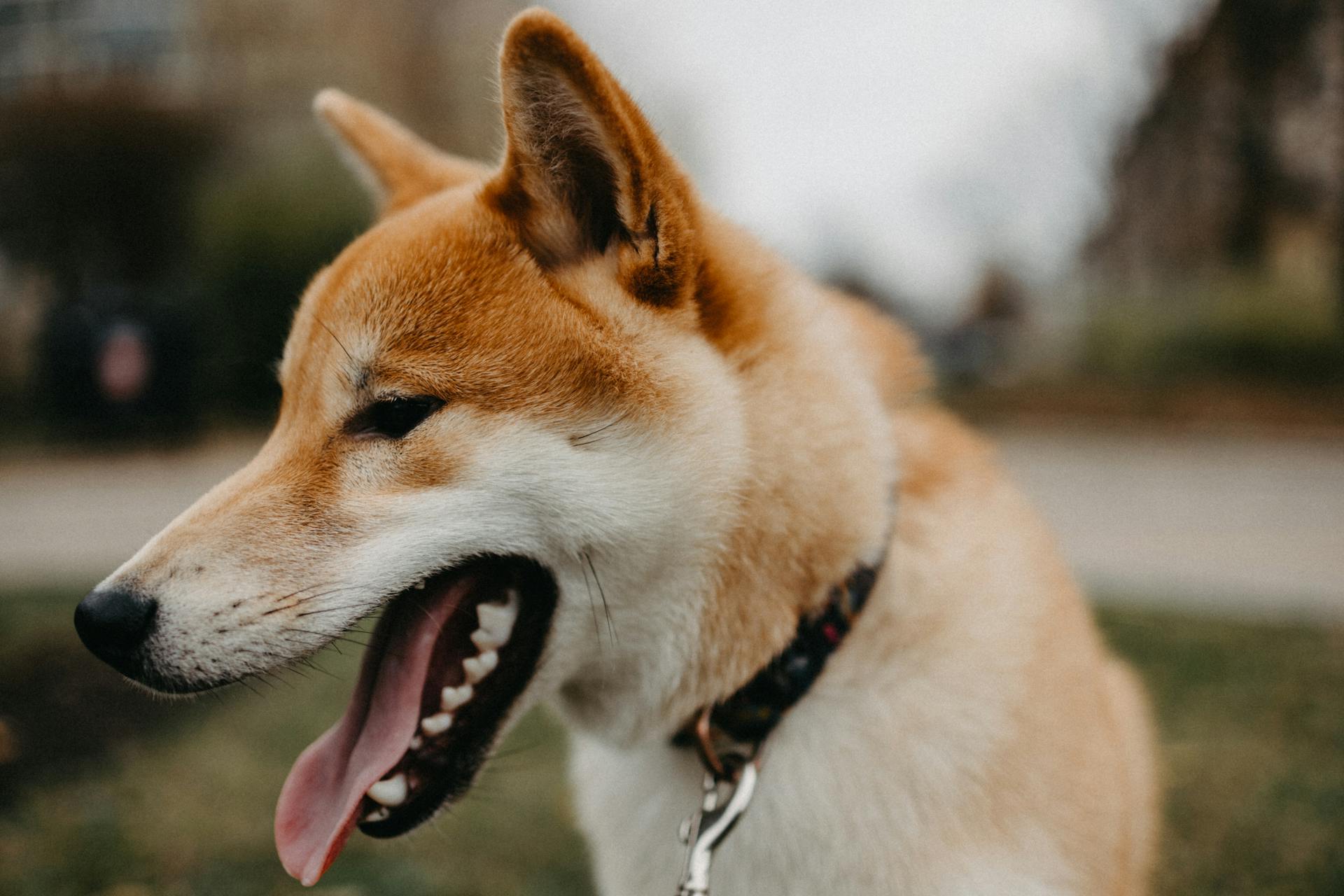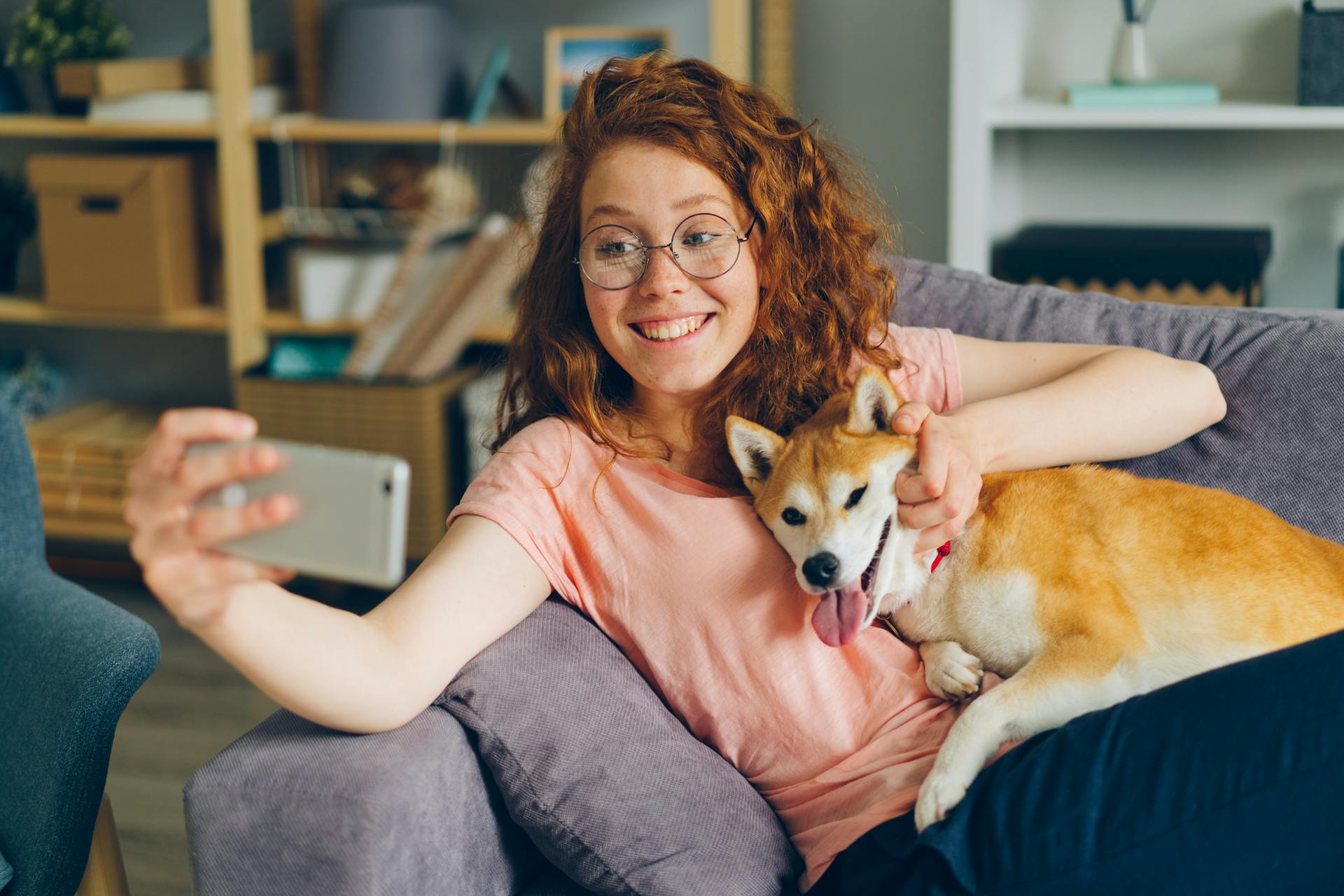
Shiba Inus are known for their strong-willed and independent nature, which can make them challenging to train.
They thrive in environments with clear boundaries and consistent rules, which is why early socialization and training are crucial.
Shiba Inus are naturally wary of strangers, so they may take time to warm up to new people and environments.
With proper introduction and socialization, they can become confident and calm in new situations.
Their strong prey drive and hunting instincts can make them excellent companions for outdoor activities like hiking and running.
Japanese Dog Breed
The Shiba Inu is a Japanese dog breed known for its unique temperament. They're very confident dogs, alert, loyal, and lively.
Their strong hunting instinct and independent streak make them best kept on a lead, especially when in the presence of wildlife. This is crucial to prevent any potential problems that may arise from their prey drive.
One of the most distinctive features of the Shiba Inu is their vocal nature. They're not big barkers, but they have a tendency to yodel when they want attention and can sometimes make a purring sound when being stroked. They're also known for a high-pitched scream they can often make when they become excited.
It's essential to set boundaries early with a Shiba Inu, as they have a dominant side to their nature that can become a problem if left unchecked. Adopting an unaggressive alpha role helps your pet understand who's in charge.
Here are some key characteristics of the Shiba Inu:
- Inquisitive, very playful, and generally good-natured.
- Strong prey drive and hunting instinct.
- Stubborn, independent streak.
- Vocal nature, including yodeling, purring, and high-pitched screaming.
Shiba Inus are not the best choice for first-time owners or families with young children, as they can be impatient. However, they make great companions for more experienced dog owners who are looking for a loyal and loving friend.
Temperament Traits
Shiba Inus are known for their independent nature, which can sometimes manifest as stubbornness. They may test boundaries, so it's essential to have patience and an even temperament when interacting with them.
Their aloof nature means they can be territorial, requiring early socialization to interact with other people and dogs. Providing plenty of mental and physical stimulation is also crucial to prevent boredom and destructive behavior.
Shiba Inus are quick learners, but on their own terms. They respond best to positive reinforcement techniques, such as offering rewards for good behavior and compliance. This approach is especially important when training them to stay in a crate during extended periods away from home.
Their unique personality requires a tailored approach to training, with a focus on consistency and patience. Early socialization and boundary setting are also essential to prevent aggression and promote positive interactions.
Highlights
Shiba Inus are known for their unique temperament traits, which can be both charming and challenging. They're often compared to cats due to their grooming habits and independence.
One of the most distinctive vocalizations of the Shiba Inu is the "Shiba scream", which can be startling and is often heard when they're excited or not getting their way.
Shiba Inus are quick learners, but on their own terms. They may sometimes test boundaries, so an individual with patience and an even temperament is an excellent match for this breed.
They're fiercely loyal to their families, but their loyalty is shown through their actions and presence rather than overt displays of affection. This can make them excellent watchdogs, especially for females who display strong maternal instincts.
Shiba Inus are generally easy to housebreak due to their cleanliness habits, but other types of training can be more difficult. Consistency and patience are key when training a Shiba Inu, and it's essential to discover the rewards that they respond to best.
Here are some interesting facts about Shiba Inus:
- Historical Role: Originally bred for hunting small game, Shibas have excellent instincts and agility.
- Shiba Inu Means “Brushwood Dog”: The name “Shiba Inu” translates to “brushwood dog,” possibly referring to their hunting terrain or the color of their coat.
- Internet Fame: Shiba Inus have become internet sensations, with the “Doge” meme being one of the most famous examples.
- Long Lifespan: Shiba Inus often have a long lifespan, averaging 12 to 15 years, allowing for many years of companionship.
Male vs Female
Male Shiba Inus are known to be more playful and social dogs, requiring ample exercise and mental stimulation to keep them happy and healthy.
Males tend to be larger than females, weighing around 23 pounds on average, which can make them more energetic and dominant in behavior.
Male Shiba Inus often exhibit dominant behavior, which can lead to territorialism and aggression towards other dogs, especially males.
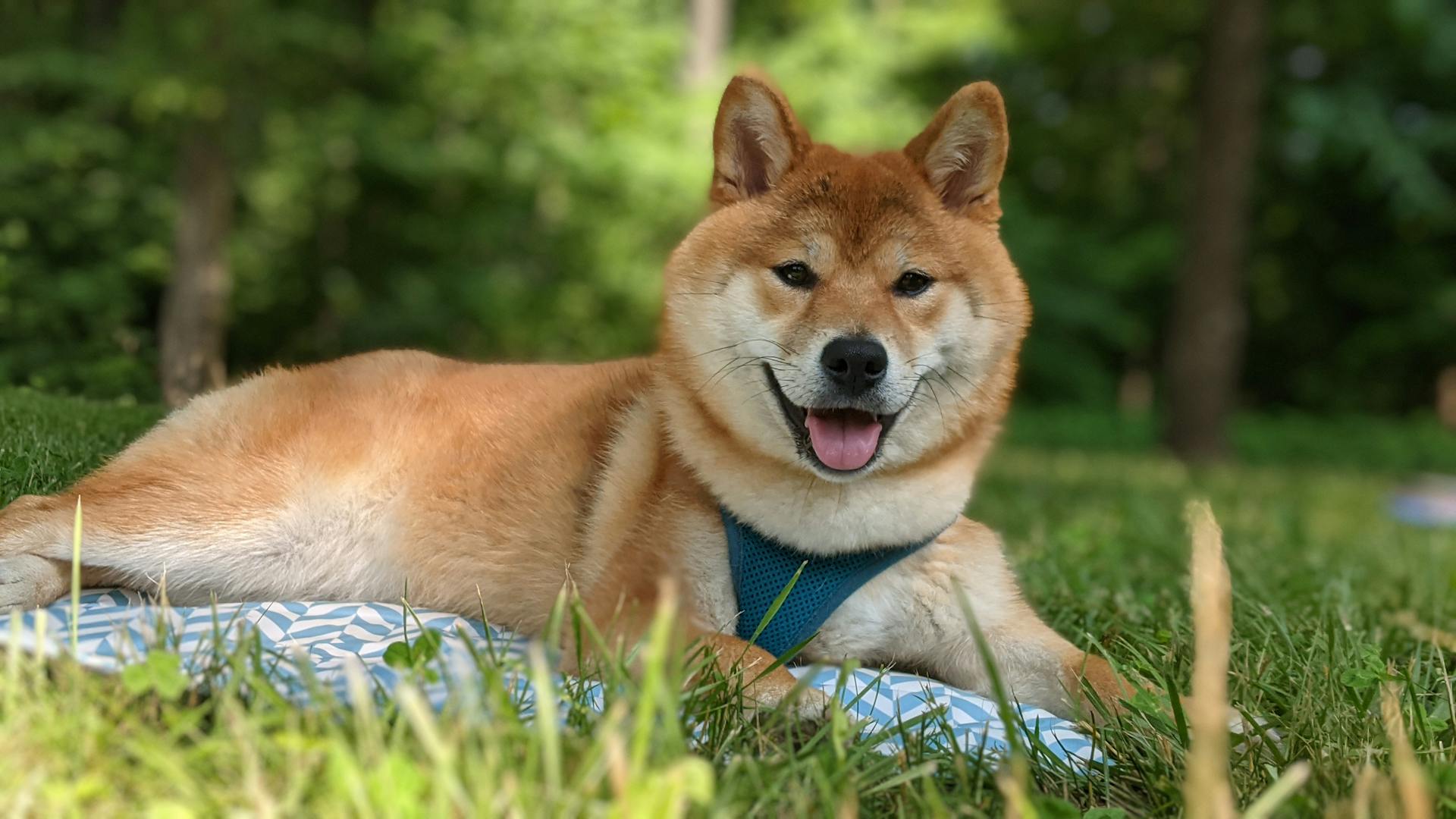
This means that training and early socialization are crucial to curb these dominant tendencies and ensure they develop into well-rounded, sociable adults.
Females, on the other hand, display strong maternal instincts and can be more nurturing and protective, making them excellent watchdogs.
Females might be slightly easier to train as they can be less dominant and stubborn compared to males.
The most striking physical difference between males and females is the shape of their heads, with males having a wider, bolder head and females having a softer face.
Males also tend to be a little heavier and taller than females, which can affect their energy levels and exercise needs.
Male Shiba Inus might display a more stubborn streak during training sessions, requiring patience, consistency, and positive reinforcement techniques to ensure they learn the necessary commands and behaviors.
Training and Behavior
Shiba Inus are notorious for being independent and strong-willed, often described as being more "cat-like" in their demeanor. They value their own space and make decisions based on their instincts and preferences.
Training a Shiba Inu can be a challenge, especially when they're stubborn. Consistency is key, and establishing a strong relationship with your pup early on is crucial to avoid them doing things their own way. They're intelligent and quick learners, but on their own terms.
To train a Shiba Inu effectively, you'll need to be patient and understanding of their unique personality. They respond well to positive reinforcement training techniques, and housebreaking is relatively easy due to their cleanliness. However, socialization and recall training are essential to prevent territorial behavior and ensure they don't chase anything that moves.
Here are some essential training tips to keep in mind:
- Establish a consistent routine and provide stable routines.
- Use positive reinforcement training techniques.
- Provide plenty of mental and physical stimulation to prevent boredom.
- Set boundaries early and adopt an unaggressive alpha role.
- Keep them on a lead, especially in the presence of wildlife.
Training
Training a Shiba Inu requires patience and consistency, as they can be independent and stubborn at times. They're highly intelligent, so they'll respond well to positive reinforcement training techniques.
Shibas are relatively easy to housebreak, thanks to their natural instinct to be clean. They'll often avoid mud and other messes, making potty training a breeze.
To train a Shiba Inu, it's essential to start early and establish a strong relationship. They're not a pack breed, so they'll consider themselves in control if not properly trained.
Here are some key training tips for Shiba Inus:
- Start training early to establish consistency and security
- Be prepared for challenges, as Shibas can be independent and stubborn
- Use positive reinforcement training techniques, such as rewards and praise
- Focus on socialization, especially during puppyhood, to help them interact with other people and dogs
- Set clear boundaries and establish an unaggressive alpha role to prevent dominant behavior
Shibas need plenty of exercise and mental stimulation to avoid boredom and destructive behavior. They require at least 40-60 minutes of exercise per day, which should include off-leash activity in a secure area.
Some fun ways to exercise and engage your Shiba Inu include:
- Hiding food treats around the garden for them to find
- Playing ball games to improve recall training
- Using a garden hose to provide a fun and cooling activity in the summer months
Remember, Shibas are naturally territorial and have a high prey drive, so they may chase small animals or become protective of their space. Early socialization and positive reinforcement training can help mitigate these tendencies.
5. Vocal Expressions
The Shiba's vocal expressions are a unique aspect of their personality. They're known for their loud, high-pitched "scream" which they use to express unhappiness, excitement, or a desire for attention.
Females are generally quieter than males, but both sexes will vocalize their feelings. This is especially true when they're seeking attention or trying to initiate play.
Their vocalizations can be a bit startling at first, but with time and patience, you'll learn to recognize the different tones and meanings behind them.
Lifestyle and Compatibility
If you're considering bringing a Shiba Inu into your life, it's essential to think about your lifestyle and compatibility. Shibas do have energy to spare and thrive with regular walks and play sessions, making them a suitable companion for active individuals or families.
Living in a small space might not be ideal for a Shiba, as they require some room to roam and exercise. You'll also want to consider any other pets in your household, as Shibas can be jealous and may not mesh well with cats or smaller pets.
Socialization is key when it comes to getting your Shiba used to other dogs and animals. Raising them from puppyhood with exposure to various sights, people, and animals can help reduce their suspicion and encourage friendliness.
Shibas tend to do best with other dogs as long as you provide supervision during playtime, but their relationship with cats will depend on both their personalities.
Individual Characteristics
Shiba Inus are known for their strong-willed nature, which can make them challenging to train at times.
Their independent streak is a result of their ancient history as hunting dogs, bred to think and act on their own.
Shiba Inus are naturally wary of strangers and may take time to warm up to new people, but once they've accepted you, they can be fiercely loyal.
They're not generally suited for families with very young children, as they can be quite delicate and may not tolerate rough handling.
Male vs Female Comparison
Male Shiba Inus typically grow larger than females, weighing around 23 pounds on average, which often translates to a higher level of energy and stamina.
Males can be more playful and exuberant, requiring ample exercise and mental stimulation to keep them happy and healthy.
In contrast, female Shiba Inus are notably more independent-minded.
The most striking physical difference between males and females is that males have a wider, bolder head while females have a softer face.
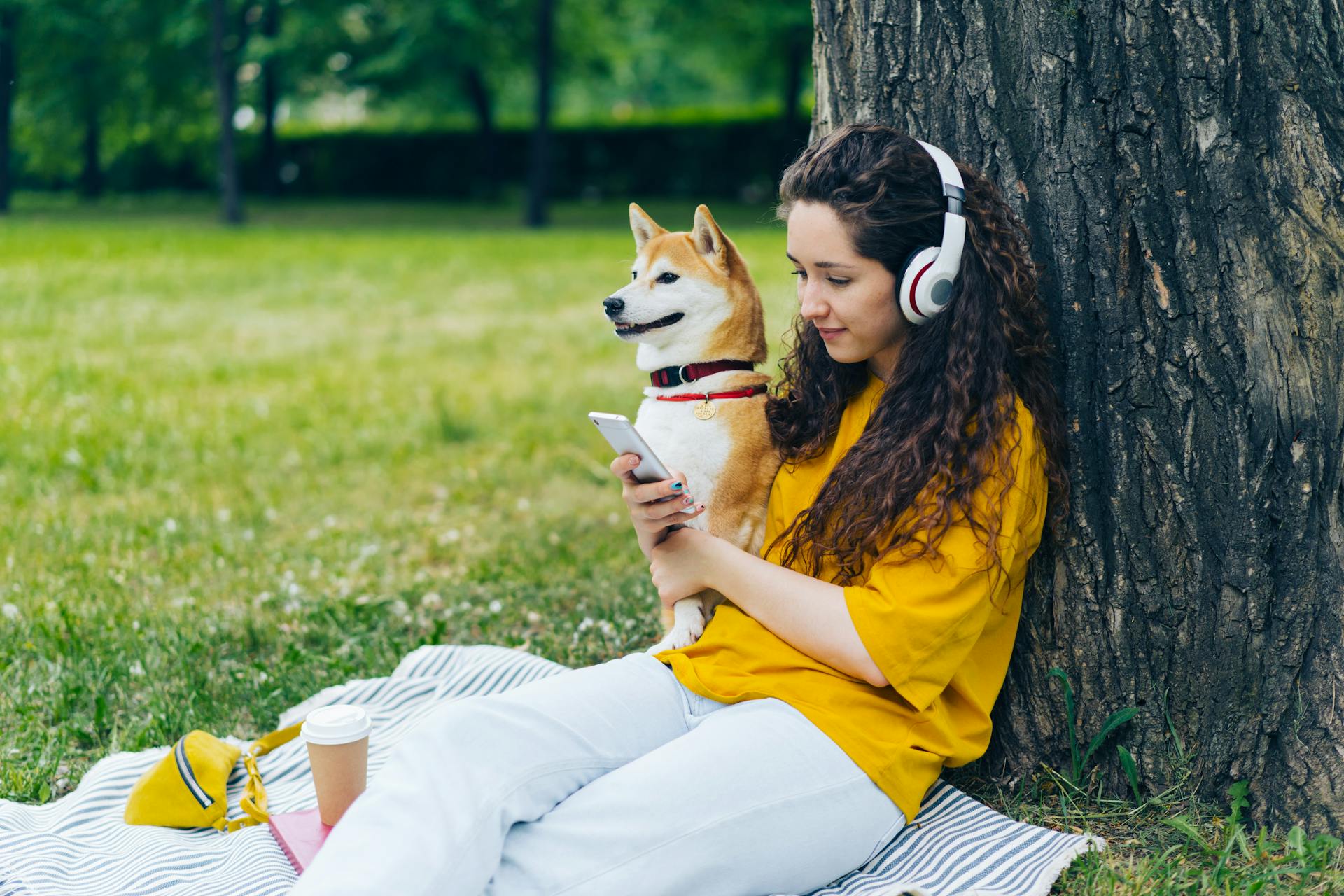
Males tend to be a little heavier and taller than females.
Male Shiba Inus are known to be easier to train than females, who can be very headstrong.
Male Shiba Inus might display a more stubborn streak during training sessions, requiring patience, consistency, and a firm, gentle hand to ensure they learn the necessary commands and behaviors.
Female
Female Shiba Inus often display strong maternal instincts, making them excellent with children and smaller pets in the household. This nurturing nature can also make them protective and vigilant.
Females are generally easier to train, as they tend to be less dominant and stubborn. Early socialization is essential to ensure they develop into well-rounded, sociable adults.
Individual personality traits can vary greatly within each gender, so it's essential to understand and respect these unique characteristics.
Training and Ownership
Training a Shiba Inu requires consistency and patience, as they can be independent and stubborn at times. They thrive on routine and positive reinforcement training techniques.
A Shiba Inu's temperament is shaped by their early training, so it's essential to start training early and be consistent. Consistency will play a huge part in the dog's training, and it's crucial to set up boundaries for your Shiba Inu due to their aloof nature.
Shiba Inus are relatively easy to train, but their strong-willed nature means training can sometimes be a challenge. They tend to lose focus and test boundaries, making recall training essential.
To avoid boredom and destructive behavior, Shibas need plenty of mental stimulation. They have the potential for destructive behavior around the home if they become too bored and inactive. Indulge their playful side with toys and games, and make sure you exercise their minds as well as their bodies.
A Shiba Inu needs between 40 and 60 minutes of exercise every day to satisfy their energetic, active personalities. This includes plenty of off-lead activity in a safe, enclosed area.
Here are some essential training tips for Shiba Inus:
- Provide plenty of mental and physical stimulation if you plan to leave your house for an extended period.
- Train your Shiba Inu to stay in a crate during these times.
- Involve your Shiba Inu in anything and everything going on around the home, and they'll be very happy.
- Include ball games in your training to help improve their recall training without boring them.
- Hiding food treats around the garden can be a fun and effective way to provide mental stimulation.
Frequently Asked Questions
Do Shiba Inus like to cuddle?
Shiba Inus are not typically open to free cuddles and often maintain a distance from unfamiliar faces. They may have a "no-cuddle zone" due to their independent nature.
Why are Shiba Inus so dramatic?
Shiba Inus are known for their dramatic nature, often expressing fear or anxiety through loud vocalizations. This can be triggered by various situations, including vet visits, baths, and encounters with unfamiliar dogs.
Do Shiba Inus like to be held?
Shiba Inus are generally not fond of being held, especially by strangers. They tend to prefer their personal space and may not enjoy being picked up or cuddled.
What are the pros and cons of a Shiba Inu?
Shiba Inus are intelligent and independent dogs with a strong will, making them a great fit for experienced owners who value autonomy and challenge. However, their strong personalities can be a challenge for inexperienced owners who prefer a more obedient pet
What is the reputation of a Shiba Inu?
Shiba Inus are known for their independent and athletic nature, often appearing aloof at times. They also exhibit a unique self-grooming behavior reminiscent of cats.
Featured Images: pexels.com
